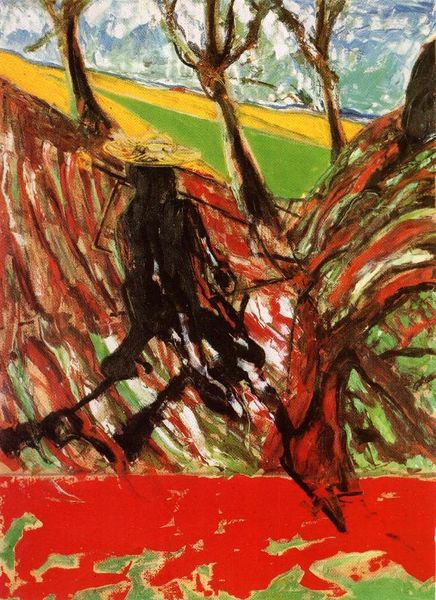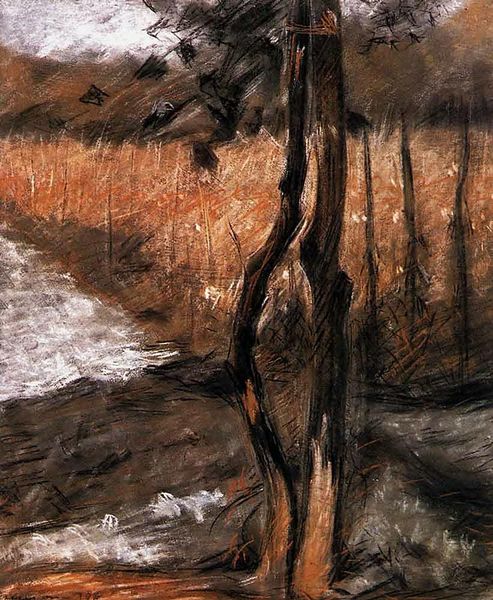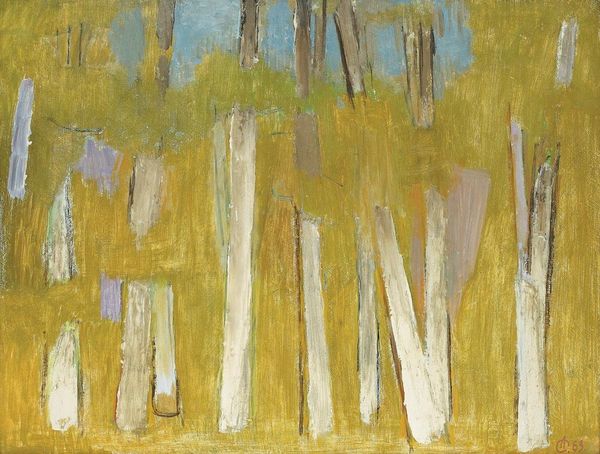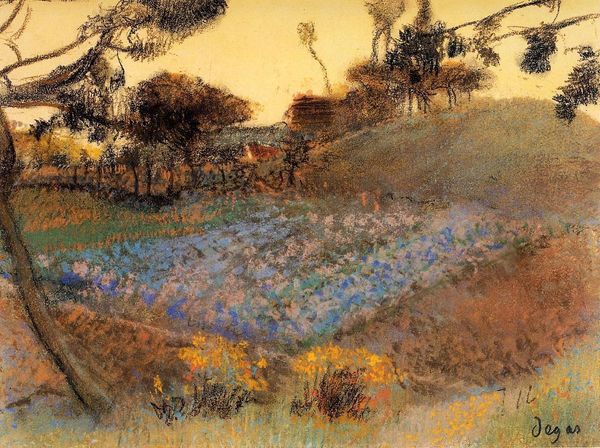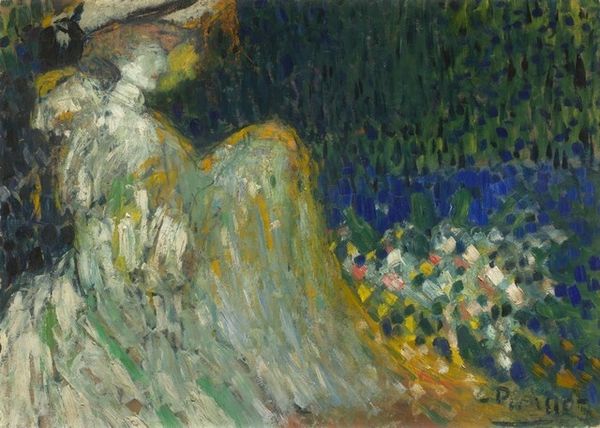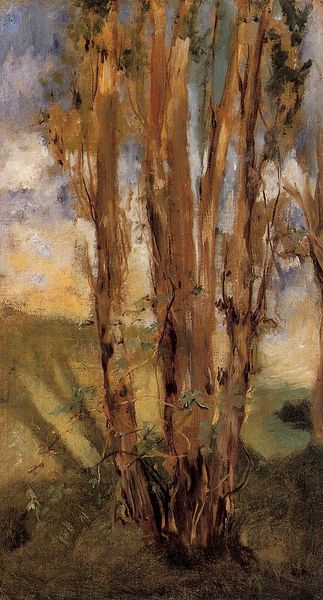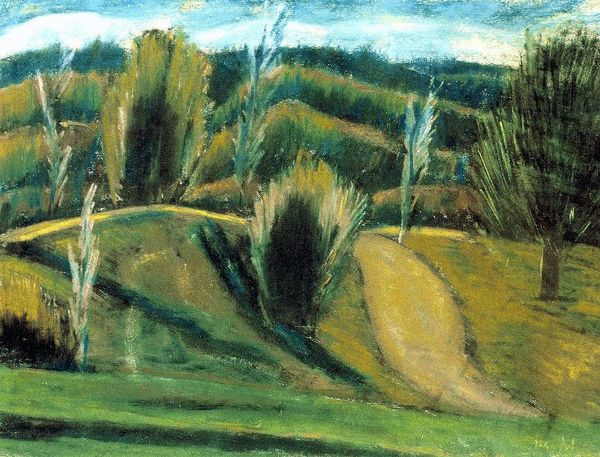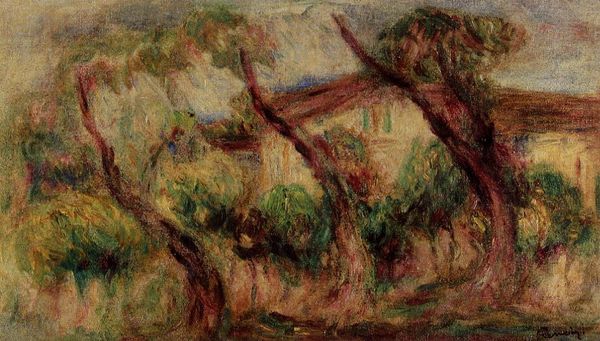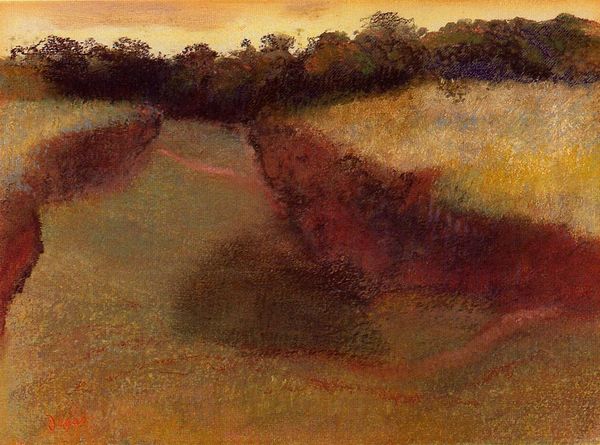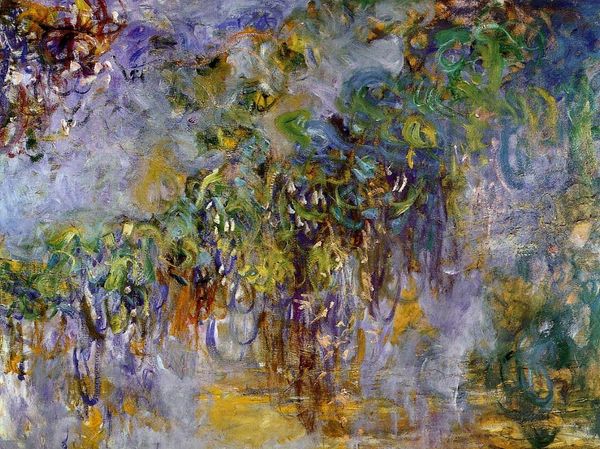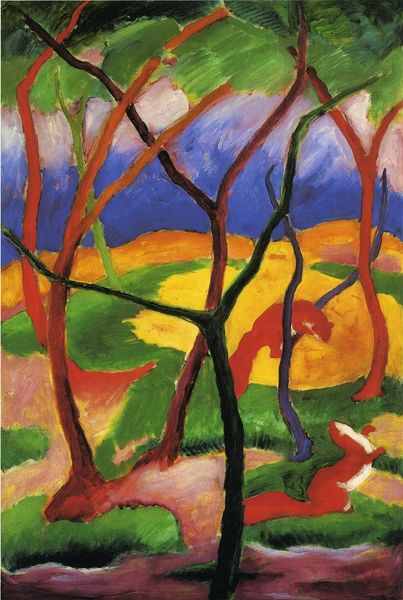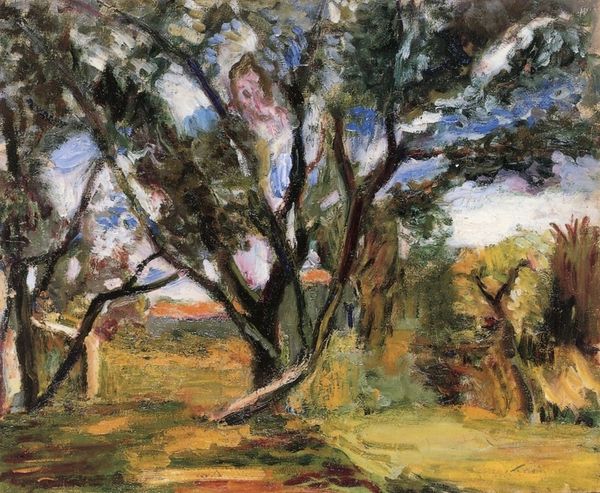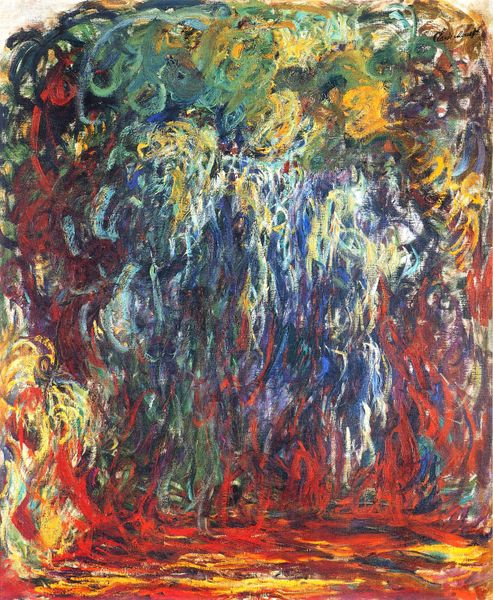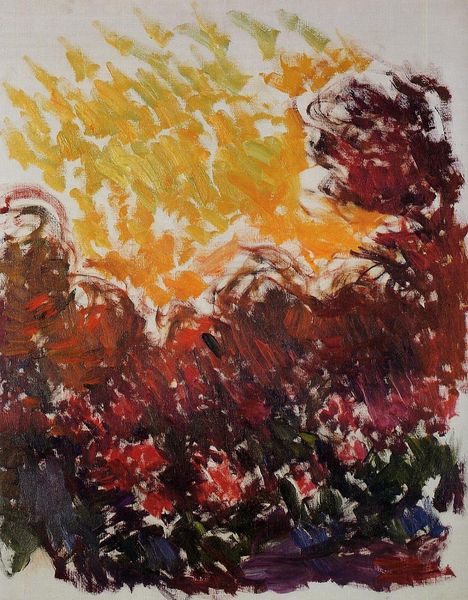
Copyright: Francis Bacon,Fair Use
Curator: Let’s spend a few minutes discussing Francis Bacon's “Study for Landscape After Van Gogh," painted in 1957 using oil on canvas. Editor: My first impression is... agitation. Like a storm’s just passed through, bending all the vegetation, and leaving a slightly melancholic residue in the air. Curator: Interesting. Bacon, of course, never actually met Van Gogh, but he was deeply affected by Van Gogh’s life and art, seeing in it a reflection of his own existential anxieties. He repeatedly turned to Van Gogh, seeing a kindred spirit, even if that reading departs quite drastically from our traditional interpretation of Van Gogh’s mental states. Editor: Well, even just compositionally, I get it. Look at how Bacon distorts the landscape. Those slashing strokes! That heavy horizon line! It’s as if the canvas itself is straining under some unbearable pressure. It's quite raw. He channels a really untamed sort of landscape—both interior and exterior, I guess. Curator: Yes, Bacon described Van Gogh as being haunted by his understanding of what existence was, and for Bacon, the role of the artist was to be a vehicle of perception and transmit those raw realities. Editor: The strange thing is that Bacon supposedly destroyed many of his paintings directly inspired by Van Gogh. Perhaps because he felt they fell short, or maybe the identification was just too… intense? But this ‘study’… It's compelling. There’s an energy and unresolved quality to it. And I'm still so very intrigued by his mark-making. Curator: Bacon’s engagement with photography and film are also significant, in so far as they further illuminate how the real world could be made available to perception. The figure in motion, or rather, a painting that invokes that condition. Editor: It's interesting how he uses that almost sickly yellow and raw umber too, heightening the drama, bordering on something truly terrifying. Bacon finds a landscape there, absolutely. Curator: Indeed. And I think that’s a useful point, especially for those of us committed to seeing art in the broadest context. Thank you for helping bring it into view in the particular here today. Editor: My pleasure. Always a pleasure. Thank you.
Comments
No comments
Be the first to comment and join the conversation on the ultimate creative platform.
